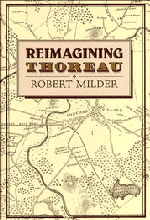7 - “A Point of Interest Somewhere Between” (1854–1857)
Published online by Cambridge University Press: 05 November 2011
Summary
I once thought that there were no second acts in American lives.
F. Scott FitzgeraldIf the Walden I have described is something less – and more – than the unified prose poem in organic form familiar to readers since Matthiessen's time, it is also a text whose shifting emphases and structures of belief Thoreau could never have openly acknowledged. “It is a great satisfaction to find that your oldest convictions are permanent,” he told Harrison Blake in 1857, adding: “With regard to essentials, I have never had occasion to change my mind. The aspect of the world varies from year to year, as the landscape is differently clothed, but I find that the truth is still true” (Corr 491). Implicit in Thoreau's words is the odd notion that change is discreditable, an admission of having once been wrong or in only partial possession of “the truth.” “Occasions” force a change of mind; one never grows toward it endogenously. Where a writer like Melville could thrive on change because the “essentials” for him were ideas about experience that developed as the mind unfolded and deepened, Thoreau staked himself on permanence because his essentials were wordless intuitions exempt from the shocks that topple formal beliefs and from the gradual psychic attrition that debilitates them. To concede change was equivalent to allowing that his intuitions were groundless.
- Type
- Chapter
- Information
- Reimagining Thoreau , pp. 167 - 182Publisher: Cambridge University PressPrint publication year: 1995



